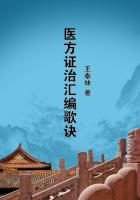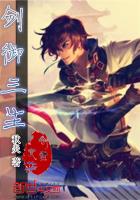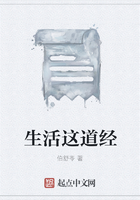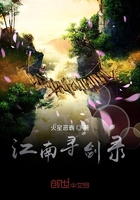She was in her room, in the same pink dressing-gown, and standing in the same attitude as though screening her papers from me. On her face was an expression of perplexity and irony, and it was evident that having heard of my arrival, she had prepared herself not to cry, not to entreat me, not to defend herself, as she had done the day before, but to laugh at me, to answer me contemptuously, and to act with decision. Her face was saying:
"If that's how it is, good-bye."
"Natalie, I've not gone away," I said, "but it's not deception. I have gone out of my mind; I've grown old, I'm ill, I've become a different man -- think as you like. . . . I've shaken off my old self with horror, with horror; I despise him and am ashamed of him, and the new man who has been in me since yesterday will not let me go away. Do not drive me away, Natalie!"
She looked intently into my face and believed me, and there was a gleam of uneasiness in her eyes. Enchanted by her presence, warmed by the warmth of her room, I muttered as in delirium, holding out my hands to her:
"I tell you, I have no one near to me but you. I have never for one minute ceased to miss you, and only obstinate vanity prevented me from owning it. The past, when we lived as husband and wife, cannot be brought back, and there's no need; but make me your servant, take all my property, and give it away to any one you like. I am at peace, Natalie, I am content. . . . I am at peace."
My wife, looking intently and with curiosity into my face, suddenly uttered a faint cry, burst into tears, and ran into the next room. I went upstairs to my own storey.
An hour later I was sitting at my table, writing my "History of Railways," and the starving peasants did not now hinder me from doing so. Now I feel no uneasiness. Neither the scenes of disorder which I saw when I went the round of the huts at Pestrovo with my wife and Sobol the other day, nor malignant rumours, nor the mistakes of the people around me, nor old age close upon me -- nothing disturbs me. Just as the flying bullets do not hinder soldiers from talking of their own affairs, eating and cleaning their boots, so the starving peasants do not hinder me from sleeping quietly and looking after my personal affairs.
In my house and far around it there is in full swing the work which Dr. Sobol calls "an orgy of philanthropy." My wife often comes up to me and looks about my rooms uneasily, as though looking for what more she can give to the starving peasants "to justify her existence," and I see that, thanks to her, there will soon be nothing of our property left and we shall be poor; but that does not trouble me, and I smile at her gaily. What will happen in the future I don't know.
DIFFICULT PEOPLE YEVGRAF IVANOVITCH SHIRYAEV, a small farmer, whose father, a parish priest, now deceased, had received a gift of three hundred acres of land from Madame Kuvshinnikov, a general's widow, was standing in a corner before a copper washing-stand, washing his hands. As usual, his face looked anxious and ill-humoured, and his beard was uncombed.
"What weather!" he said. "It's not weather, but a curse laid upon us. It's raining again!"
He grumbled on, while his family sat waiting at table for him to have finished washing his hands before beginning dinner. Fedosya Semyonovna, his wife, his son Pyotr, a student, his eldest daughter Varvara, and three small boys, had been sitting waiting a long time. The boys -- Kolka, Vanka, and Arhipka -- grubby, snub-nosed little fellows with chubby faces and tousled hair that wanted cutting, moved their chairs impatiently, while their elders sat without stirring, and apparently did not care whether they ate their dinner or waited. . . .
As though trying their patience, Shiryaev deliberately dried his hands, deliberately said his prayer, and sat down to the table without hurrying himself. Cabbage-soup was served immediately.
The sound of carpenters' axes (Shiryaev was having a new barn built) and the laughter of Fomka, their labourer, teasing the turkey, floated in from the courtyard.
Big, sparse drops of rain pattered on the window.
Pyotr, a round-shouldered student in spectacles, kept exchanging glances with his mother as he ate his dinner. Several times he laid down his spoon and cleared his throat, meaning to begin to speak, but after an intent look at his father he fell to eating again. At last, when the porridge had been served, he cleared his throat resolutely and said:
"I ought to go tonight by the evening train. I out to have gone before; I have missed a fortnight as it is. The lectures begin on the first of September."
"Well, go," Shiryaev assented; "why are you lingering on here?
Pack up and go, and good luck to you."
A minute passed in silence.
"He must have money for the journey, Yevgraf Ivanovitch," the mother observed in a low voice.
"Money? To be sure, you can't go without money. Take it at once, since you need it. You could have had it long ago!"
The student heaved a faint sigh and looked with relief at his mother. Deliberately Shiryaev took a pocket-book out of his coat-pocket and put on his spectacles.
"How much do you want?" he asked.
"The fare to Moscow is eleven roubles forty-two kopecks. . . ."
"Ah, money, money!" sighed the father. (He always sighed when he saw money, even when he was receiving it.) "Here are twelve roubles for you. You will have change out of that which will be of use to you on the journey."
"Thank you."
After waiting a little, the student said:
"I did not get lessons quite at first last year. I don't know how it will be this year; most likely it will take me a little time to find work. I ought to ask you for fifteen roubles for my lodging and dinner."
Shiryaev thought a little and heaved a sigh.
"You will have to make ten do," he said. "Here, take it."
The student thanked him. He ought to have asked him for something more, for clothes, for lecture fees, for books, but after an intent look at his father he decided not to pester him further.
The mother, lacking in diplomacy and prudence, like all mothers, could not restrain herself, and said:















